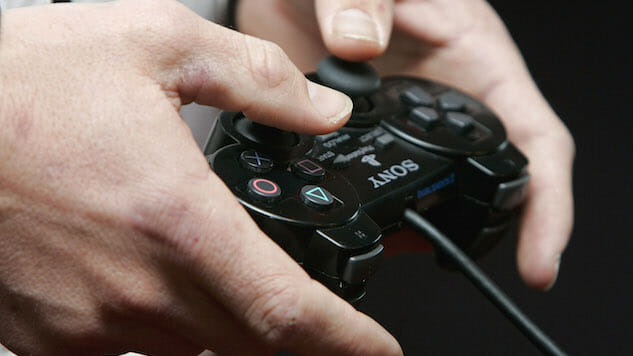World Health Organization May Recognize “Gaming Disorder” in 2018
Photos by Kristian Dowling/Getty, Cate Gillon/Getty Games News World Health Organization
The World Health Organization (WHO) is closer to formally recognizing videogame addiction. In a draft of the body’s forthcoming 11th International Classification of Diseases (ICD), WHO includes what is called “gaming disorder” on a list of mental health conditions.
The ICD, which also includes entries for alcohol, drugs and gambling, defines “gaming disorder” as the following:
Gaming disorder is characterized by a pattern of persistent or recurrent gaming behaviour (‘digital gaming’ or ‘video-gaming’), which may be online (i.e., over the internet) or offline, manifested by: 1) impaired control over gaming (e.g., onset, frequency, intensity, duration, termination, context); 2) increasing priority given to gaming to the extent that gaming takes precedence over other life interests and daily activities; and 3) continuation or escalation of gaming despite the occurrence of negative consequences. The behaviour pattern is of sufficient severity to result in significant impairment in personal, family, social, educational, occupational or other important areas of functioning. The pattern of gaming behaviour may be continuous or episodic and recurrent. The gaming behaviour and other features are normally evident over a period of at least 12 months in order for a diagnosis to be assigned, although the required duration may be shortened if all diagnostic requirements are met and symptoms are severe.
Basically, you play a lot of videogames. “Impaired control” is the key phrase in this definition, with the apparent disorder leading gaming to “take precedence” over basically every other aspect of the addict’s life.
The medium of videogames isn’t necessarily the same as, say, food, drugs or alcohol, which have to be consumed, but rather more like gambling, with the compulsion to do something. It is interesting to consider this, with a big controversy in 2017 being the gambling nature of loot box systems from videogames like Star Wars: Battlefront II.
But as aforementioned, this entry is only part of a first draft of the ICD due in 2018—mental health experts are still in disagreement over the legitimacy of such a “gaming disorder,” so expect the debate to continue in the months to come.